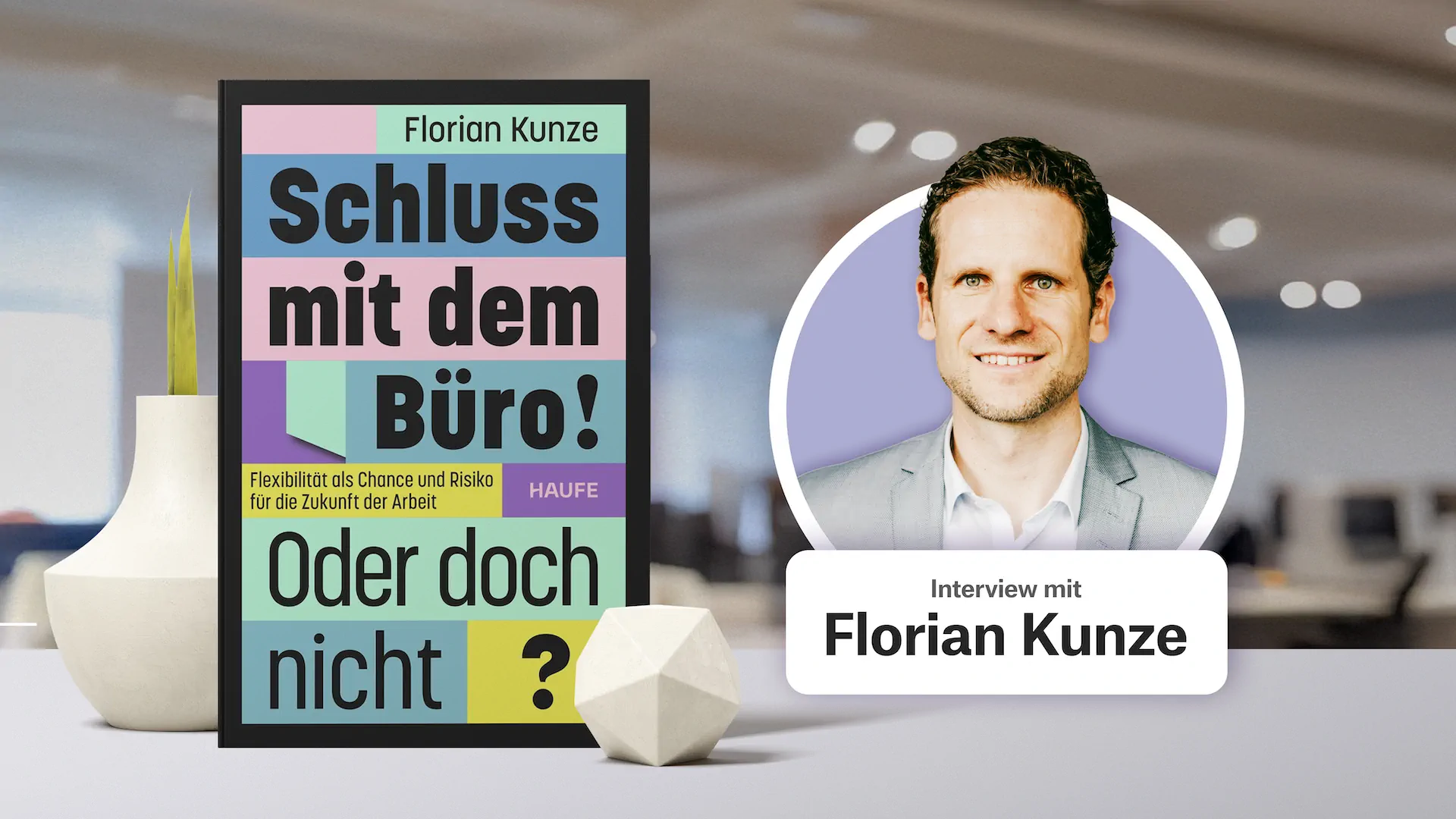
What motivates Gen Z in the workplace? 11 key aspects that boost this generation
What motivates Gen Z in the workplace? Every company faces this question now that this generation, born between 1997 and 2012, has entered the workforce. Like any other demographic group, Gen Z brings its own perspectives and needs. But more than previous generations, they aren’t only looking for a job; they’re searching for purpose and alignment with their values. It’s what keeps them engaged at work.
Being motivated matters significantly and benefits both employees and employers. It means more job satisfaction, better work-life balance, and better mental health for workers. A motivated team leads to higher productivity, increased innovation, lower turnover, and more vital business teamwork. Understanding Generation Z’s motivation can help create a work environment that attracts and engages them.
Let’s explore eleven factors that drive the youngest in the workplace.

1. Purpose
Gen Z is a purpose-driven generation. They want their work to have significance beyond just earning a paycheck. This group values organizations that make a positive difference in the world. 93% of Gen Z say a company’s impact on society influences their decision to pursue a career there1.
They’re not interested in working for businesses that don’t align with their beliefs or contribute to a more significant cause. This focus on significance means they look for roles where they can see the direct results of their efforts and feel that they are making a difference. For them, doing a meaningful job is not a nice-to-have; it’s a must-have that drives their engagement and loyalty. Therefore, communicating and demonstrating your positive influence on society makes you more likely to attract and retain Gen Z talent.
🎬 Learn how we can support your hybrid work environment in this less than two-minute video about the features of the deskbird app!
2. Money
Money is a significant motivator for Gen Z in the workplace. While they value purpose and impact, they still highly emphasize financial stability. A substantial 70% of Gen Z say that money and pay are their top motivators at a job. They are also more willing than other age groups to work nights and weekends for a better salary, with 58% open to this compared to 41% of all working generations1.
Gen Z is looking for competitive wages that reflect their skills and efforts. For them, a good pay-check is a sign of respect and recognition for their hard work. Plus, 64% cited “opportunity for career growth” as a top professional priority, which often correlates with better salaries2. Employers who offer competitive compensation packages and clear paths to income evolution also have more chances to motivate their youngest employees.

3. Career development
Career development is essential for Gen Z, who prioritize chances for improvement and learning. They’re not just looking for jobs; they’re seeking roles where they can learn new skills and progress professionally. 76% of Gen Z see themselves as the owners of their careers, driving their advancement1.
They prefer environments that offer diverse and entrepreneurial possibilities with the safety of stable employment. This generation values ongoing education and seeks to gain expertise through real-world experiences and coaching. Therefore, you are more likely to collaborate with a motivated team when providing opportunities for career development, advancement programs, and mentorship initiatives.
4. Recognition and feedback
Gen Z thrives on recognition and feedback. This generation grew up in a digital world where sharing opinions is the norm, and they expect the same in their professional lives. They value frequent, constructive evaluations to understand their performance and where they can improve. This need for continuous monitoring is crucial, as 65% of Gen Z is already comfortable being monitored at work1. They are motivated by knowing their efforts are recognized and appreciated, with 94% trusting their supervisor’s input more than external sources2.
Employers that provide regular reviews, celebrate achievements, and offer praise are more likely to keep Gen Z engaged and committed. They see recognition as a morale booster and an essential part of their career development and job satisfaction.
👉 Discover what Gen Z’s work ethics and values are!
5. Solo work
Gen Z values self-reliance. They appreciate the autonomy to tackle tasks independently and thrive when they can control their workflow. While they perform well in teams, 69% of Gen Z prefer having their workspace rather than sharing it1. They seek independence, not isolation, valuing physical connection while handling individual tasks2. This preference for solo work aligns with their desire for personalized career experiences and the chance to showcase their unique skills and contributions.
When Gen Z employees are given the opportunity to work independently, along with clear objectives and the freedom to innovate, they are more engaged and productive. Recognizing this generation’s efforts and giving them the room to excel on their terms is critical to keeping them motivated and satisfied.

6. Connections
Gen Z values creating connections in the workplace. They seek meaningful relationships with their colleagues and bosses. When fulfilled, these ties foster a feeling of belonging and boost their engagement. As an HR leader, it’s crucial to know and consider that 84% of Gen Z prefer face-to-face communication with their manager, and 78% favor in-person interactions with peers1. This generation thrives in environments where they feel connected and supported.
Supporting a culture of collaboration and open dialogue in your company can help meet these needs. Creating opportunities for team-building activities, mentoring programs, and regular check-ins can strengthen these relationships. When Gen Z employees have a sense of belonging and are part of a supportive network, they are more likely to be motivated and stay committed to their organization. Prioritizing these professional and social interactions is essential for retaining young talent.
7. In-person communication
Gen Z needs in-person communication at work. Even though they’re digital natives, they’re big on face-to-face interactions. As an HR manager, it’s vital to recognize that 84% of Gen Z prefer to speak directly with their boss, and 78% value open dialogue with peers1. They demand clear, straightforward, and constructive feedback, best delivered personally. Additionally, 53% of Gen Z prefer face-to-face discussions to instant messaging and email3.
Encouraging regular one-on-one meetings and open-door policies can significantly enhance workplace experiences. Your company can benefit from fostering an environment where physical communication is prioritized, building trust and transparency. This approach ensures Gen Z employees feel connected and understood.
💜 Read more about Gen Z communication preferences!
8. Personal accomplishment
Gen Z thrives on personal accomplishment and wants to feel that their contributions make a difference. They are driven to achieve and be acknowledged for their input. Creating an environment where Gen Z employees can set and meet personal and professional ambitions is essential for HR managers. 42% of Gen Z would instead complete a project independently and receive special recognition than work as a group1. This generation thrives on seeing the concrete results of their hard effort.
You can help them reach their goals by giving them independent projects, recognizing their achievements, and providing clear pathways for advancement. Keep Gen Z workers motivated and engaged with a culture celebrating their success.
9. DEI (Diversity, Equity & Inclusion)
Diversity, equity, and inclusion (DEI) are essential values to promote in the workplace, and Gen Z is not indifferent to businesses that do so. This generation prioritizes working in diverse environments and expects employers to foster inclusive cultures. 77% of Gen Z say that a company’s multicultural level affects their decision to work there1. They seek brands whose principles align with their own, emphasizing civic activism and strong ethical standards. Organizations must demonstrate a commitment to DEI, showing tangible efforts toward creating a welcoming work environment.
Highlighting corporate accountability initiatives and responsible practices can attract and retain Gen Z talent, ensuring they feel respected and valued within your organization. Furthermore, 75% of Gen Z want their work to have meaning, which includes being part of a company that stands for social and societal causes1.
10. Company reputation
For Gen Z, a company’s reputation is critical in their decision to join and stay with an organization. While only 5% of Gen Z are motivated solely by a brand’s image, they deeply consider ethical practices and social impact1. They want to work for businesses that not only offer competitive salaries and growth opportunities but also have a solid moral foundation and a positive societal influence.
You can also boost your reputation by ensuring your company is known for innovation and leadership. Moreover, 91% said that technological advancement in an enterprise influences their interest in working there1. Focus on promoting corporate values that align with Gen Z since they expect to feel proud of their employer.
🌍 Discover why and how to promote sustainability in the office!

11. Technology
Generation Z wants to use advanced technology, like AI, robotics, and automation, to maximize efficiency. Being digital natives, they’re comfortable with new technologies and see them as productivity tools. 91% of Gen Z said technological sophistication affects their interest in working at a company1. They want office automation tools to streamline mundane tasks so they can focus on more strategic and impactful responsibilities.
To attract and retain Gen Z talent, ensure your organization has the latest equipment and provides effective training to use these tools. By promoting a tech-forward workplace, your goal is to make them feel like they’re working smarter.
Understanding what motivates Gen Z in the workplace is key to attracting and retaining these young talents. They want purpose, financial stability, career growth, recognition, independence, and strong connections. They value face-to-face communication, personal accomplishments, diversity, equity, and inclusion. Reputation is also important, especially regarding ethics and social impact. Gen Z expects advanced technology to make their work more meaningful by focusing on what really matters. Considering these Generation Z motivation factors can ensure your company creates an inspiring and engaging workplace, keeping employees around for a long time.
Start a free trial of the deskbird app and discover how our technology supports your hybrid team and improves the on-site experience!
1 STATISTICS EXPOSING WHAT GENERATION Z WANTS FROM THE WORKPLACE, Ryan Jenkins.
2 Understanding Generation Z in the workplace, Deloitte.
3 There’s a new face in the workplace: Five ways to engage and motivate Generation Z, Reward Gateway.
Sources:
- Help Me Grow! What Motivates Gen Z?, Deloitte.
- Understanding Generation Z in the workplace, Deloitte.
- There’s a new face in the workplace: Five ways to engage and motivate Generation Z, Reward Gateway.
- Helping Gen Z Employees Find Their Place at Work, HBR.
- STATISTICS EXPOSING WHAT GENERATION Z WANTS FROM THE WORKPLACE, Ryan Jenkins.
Frequently Asked Questions








.webp)

_11zon.webp)